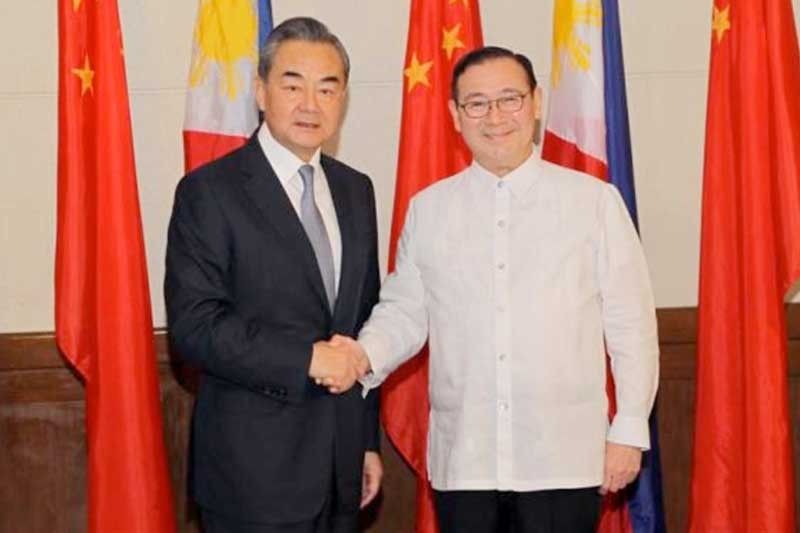China’s peaceful rise revisited


President Xi Jinping had hoped that the APEC Leaders Summit would be the validation of China’s soft power as the new champion of globalization and free trade, and as the fount of development assistance – spearheaded by its Belt and Road Initiative (BRI).
The Chinese leader said all the right things: Globalization has been good, the multilateral trading system that made this possible needs to be preserved, and unilateralism must be rejected. And that the BRI is an initiative meant to help emerging economies hurdle their infrastructure deficiencies - all to the global good of a connected Asia-Pacific.
I don’t mean to pass judgment on China’s intentions with their BRI as the US and others have done. In fact, I had invited key executives of the Asia Investment Infrastructure Bank (AIIB) on two occasions to present the initiative to an ASEAN audience. I had asked the PROC ambassador’s help in inviting them, but I never even got the courtesy of a reply. My feeling is that he thinks I am anti-China because of my support for the Hague decision even as I profess the need to build meaningful commercial relations with China given that the economic future of the region is going to be increasingly tied to the world’s most populous economy.
But that’s the rub
Any government will use economic largesse as a leverage to further its political and diplomatic aims. That leverage, however, is limited by the discretionary funds it possesses and the control it exercises over the economy, including private businesses. The difference with China, however, is that despite the number of wealthy Chinese individuals and large corporations, it is still a state-run economy. Given the amount of resources at its disposal and the tight control it exercises over its economy, the leverage it can apply is more considerable than possible in free enterprise economies. Profits – and more often, losses – are collateral to political and strategic aims. So China can apply the classic carrot and stick more effectively. This is what exactly happened when we filed the arbitration case in The Hague. Overnight, our bananas were found to be pest infested. Our country was declared too dangerous for Chinese tourists to visit. Now that we are friends, we have seen Chinese tourists return in droves.
Chinese in small scale mining
Chinese investments, however, have been slow to follow. That’s not surprising. Globally, Chinese foreign investments have largely been focused on maintaining its access to natural resources, principally minerals, and in securing its supply lines – again in the national interest rather than Chinese companies in search of corporate profits. There is a substantial Chinese presence in small scale mining in the Philippines although the output is large scale to the point that statistics show we are the second largest provider of nickel to China and a leading supplier of gold to Hong Kong (SAR).
China also has a penchant for signing MOUs and other promises of cooperation, but with poor implementation record. The Philippines reportedly signed 29 such MOUs during President Xi’s visit including one on cooperation on oil and gas development. The collective result of all of these is a healthy dose of skepticism and suspicion of China’s motives in investing overseas and of their commitment to open markets. This has prevented China from being totally accepted as a benign influence on the global economy.
Tremendous potential
China has a lot to offer the world. First as a consumer market, McKinsey estimates that by 2022, about 76 percent of China’s urban population of 765 million (2015) will be considered middle class. That’s 550 million , which makes China’s middle class alone the third most populous country in the world. Making that accessible to emerging economies like the Philippines will generate a virtuous cycle of trade and investments.
Second, China’s rise as a global powerhouse will even be more magnified as we enter the digital economy/4th Industrial Revolution. Instead of being recipients of technology, they now have the potential to be the global provider of technology including artificial intelligence (AI), quantum computing, high-speed rail, and solar energy among others.
The question is how much are they are willing to share with the rest of the world.
Third, China has many world-class companies that supply the requisites of the modern economy – telecommunications, smart cities, e-commerce platforms and transportation, among others. Huawei has become a respected name in telecommunications. ZTE would have been too except that its ties to the PLA draws suspicion, probably undeserved. And fourth, the BRI may yet live up to its promise of connecting the Asia-Pacific and with the rest of the world if the recipients are convinced there are no strings attached.
In short, China has still to prove it will live up to the mantra “prosper thy neighbor, not beggar thy neighbor” frequently invoked by Malaysian Prime Minister Mahathir.
The lesson should not be lost to our political leadership. In international relations, there are no permanent friends, just national interest. There are no free lunches consequently. “Bromances” between leaders are temporary, not life long. That applies to all our diplomatic partners. But China’s size and leverage makes them more potent in this game. In time, they may yet be the global champion of free and open trade and investments in the truest sense of the word. Until then, it would be wise to engage with China wholeheartedly. but with caution. For a country like us where a non-tradable commodity as sovereignty is part of the equation such as in a joint exploration of oil and gas in the Philippine EEZ - caveat emptor or buyer’s beware is the phrase that comes to mind.
- Latest
- Trending

























